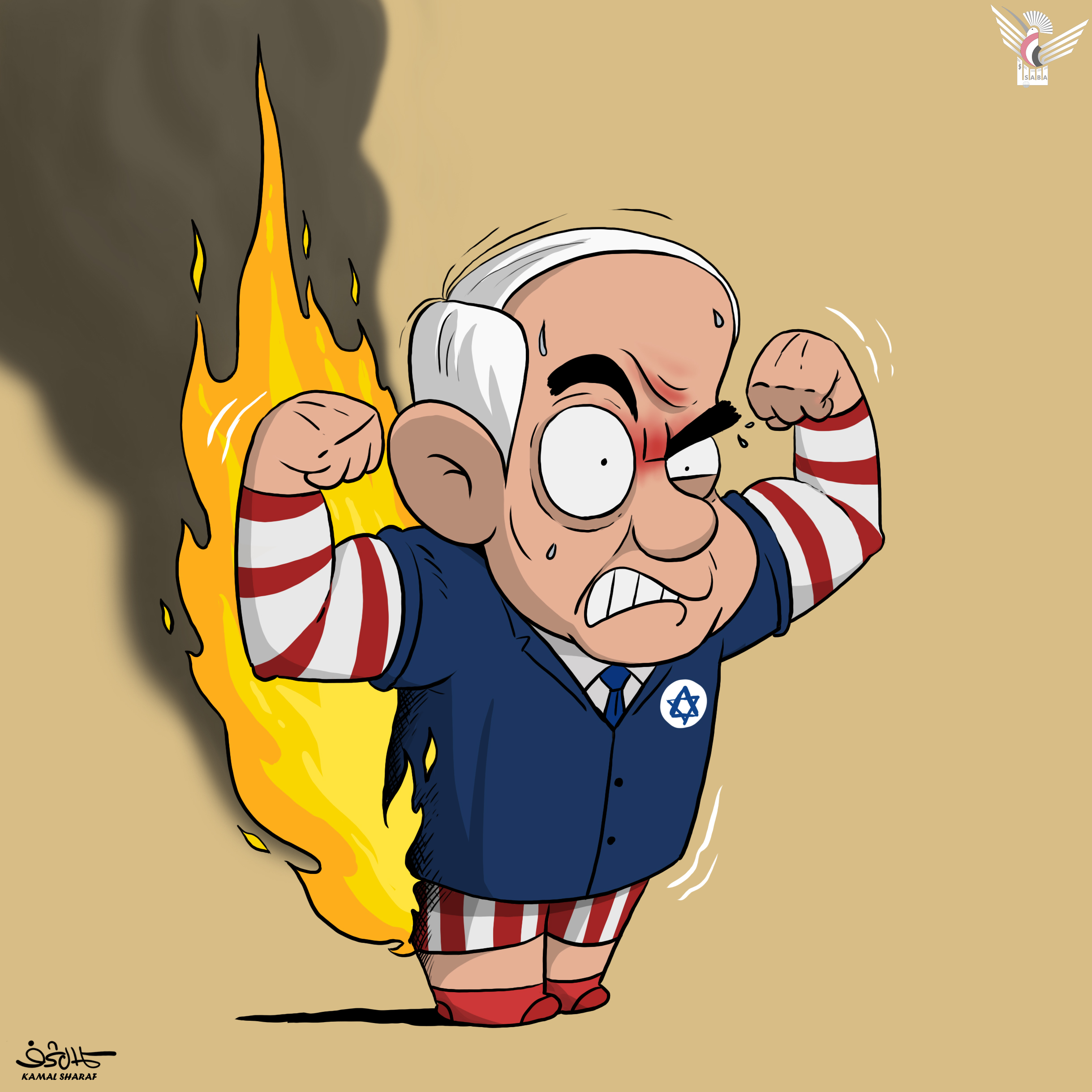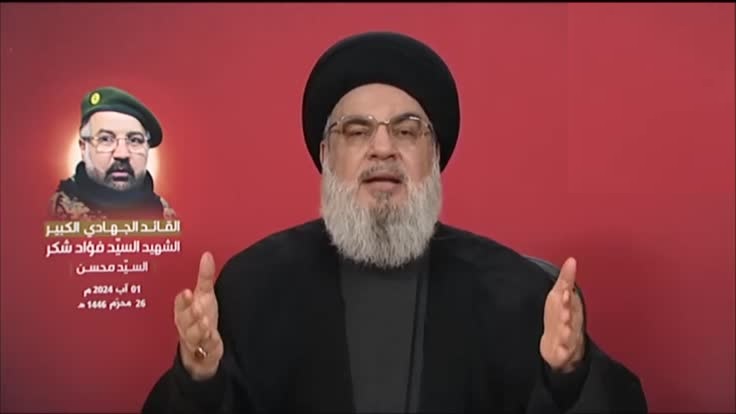BEIRUT August 01. 2024 (Saba) - Hezbollah Secretary-General Sayyed Hassan Nasrallah on Thursday declared that the enemy and its backers should expect an inevitable response, with no room for debate. He emphasized that the confrontation will be determined by the days, nights, and the field of battle between them.
Nasrallah made these remarks during a memorial service held by Hezbollah in honor of the martyr Sayyed Fouad Shukr in the southern suburb of Beirut on Thursday afternoon.
He affirmed that the Zionist enemy should anticipate retaliation from the dignified people of this nation, marking the beginning of a new phase of engagement on all support fronts. Addressing the enemy, Nasrallah warned, “You may laugh now, but prepare for much sorrow. You have crossed lines and committed acts of aggression beyond measure.”
He underscored that the assassination of Ismail Haniyeh, while he was in Iran, has deeply offended the Iranians. He questioned, “Do they believe that killing Haniyeh in Tehran will go unanswered by Iran?” Nasrallah noted that the conflict has escalated beyond mere support fronts and into a significant new phase.
He also stressed that surrender by the resistance fronts is not an option, regardless of the pressure applied. He highlighted the ongoing tragedy in Gaza, where children are killed daily, and criticized the hypocrisy of Netanyahu’s Congressional appearance, where he received applause.
Sayyed Hassan Nasrallah stated, “Who in the world cares whether the region avoids an open war? Regardless of crossing red lines, the only solution is to halt the aggression on Gaza.”
He emphasized the need to distinguish between two issues: first, working with the Lebanese support front for Gaza, which will begin tomorrow morning, and second, responding to the recent attack on the southern suburb, including the assassination of Sayyed Fouad Shukr. Nasrallah made it clear that the resistance will inevitably respond to this crime, and this is non-negotiable.
Nasrallah explained that the Zionist enemy’s attack on the southern suburb aimed to assassinate the esteemed jihadist leader Sayyed Fouad Shukr, as announced by the enemy. He detailed the attack on a civilian residential building in Haret Hreik, which resulted in the martyrdom of seven people, including three women, two children, an Iranian martyr, and the leader Fouad Shukr, along with dozens of wounded, mostly women and children, some of whom remain in hospitals.
Sayyed Hassan Nasrallah pointed out that the enemy's goal in targeting the resistance was to induce weakness or fear in order to influence its actions. However, he noted that such attacks on leaders only strengthen the resistance, which is driven by faith, sacrifice, and a deep emotional legacy.
He extended condolences and congratulations to the families of the martyrs, praising their steadfastness and pride. He acknowledged the collective pain but emphasized the community's patience, submission to God, and trust in His judgment.
Nasrallah referenced Imam Sayyed Ali Khamenei’s statement on the assassination of Ismail Haniyeh, expressing shared sadness and the impact of losing loved ones, including women and children. He likened this pain to the ongoing mourning of Imam Hussein, a symbol of martyrdom in Islam.
He said that the assassination of Sayyed Mohsen will only strengthen their resolve and reaffirm their decisions, making them even more determined in their resistance.
Sayyed Hassan Nasrallah emphasized that the recent Zionist aggression on the southern suburbs of Beirut was a deliberate attack, not a reaction. He outlined that the aggression targeted civilian buildings, resulted in the deaths of women and children, and aimed at a senior leader in the resistance.
Nasrallah criticized the enemy’s claim that this aggression was a response to recent incidents, calling it misleading and false.
He highlighted that the attack is part of a long history of Zionist-American aggression against the region, and rejected the notion that it was a reaction to Majdal Shams incident. He clarified that Majdal Shams incident involved a missile falling in the town, not an attack on its children.
Sayyed Hassan Nasrallah rejected allegations that the resistance was responsible for the incident in Majdal Shams, asserting that the resistance is willing to admit mistakes if proven. He highlighted that their internal investigation exonerated them from the accusations.
Nasrallah criticized the Zionist entity for hastily assigning blame and claimed that the US and some international and Arab media supported these claims. He presented an alternative explanation that an interceptor missile, which has fallen in other locations before, might have caused the incident in Majdal Shams. He denounced the accusations as unjust and misleading, aiming to clear enemy soldiers of responsibility and incite sectarian strife among the Golan, Druze, and Shiite communities.
He noted noting that the Zionist strategy appears to be reawakening sectarian tensions, which had diminished following the Al-Aqsa flood, to further their agenda.
He added, “Thanks to God, the awareness and decisive stances of numerous Druze political leaders in Lebanon and Syria, along with the strong popular positions in the Golan—especially those advocating for the expulsion of Zionist officials—have helped thwart attempts to incite strife and cleared the resistance of these accusations. I extend my condolences to the families of the martyrs in the Golan.”
H.H
resource : Saba

| more of (International) |




